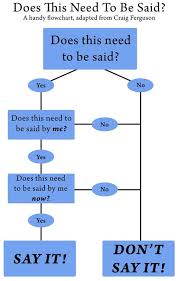I t seems like the whole world is shocked and saddened by the loss of Robin Williams.
t seems like the whole world is shocked and saddened by the loss of Robin Williams.
Makes sense. Death in any form is awful and scary.
When I heard about Robin Williams, it made me think about the veterans who take their lives. His death made me think of all the drug addicts, alcoholics and mentally ill people I know who are caught up in a legitimate — albeit exhausting — struggle with sobriety and sanity. And his suicide made me think of a teenage friend of mine who asphyxiated herself in the garage, and another friend who put a gun to his head and pulled the trigger.
Life is horrible. It makes no sense. We keep moving along.
Except the internet doesn’t allow us to move along.
Some people are saying nasty things and calling Robin Williams a coward. I’ve read tweets from people who mock kids who take four Advil and call it a suicide attempt. Still others are using Williams’ suicide as an attempt to grab a little piece of the limelight and boost traffic to their websites.
So many people are compelled to push out a first-person storyline. Nobody is listening except to find the pause — the break in thought — and interrupt with their first-person narrative.
And even when the reflection and rumination is honest and moving, it still hits the internet like a tidal wave and doesn’t stop. Your mom talks about the first time she saw a Robin Williams movie. Your cousins are talking about bipolar disorder. And ordinary people are opening up and sharing their experiences about depression because, you know, that’s what we do on the internet, and it’s allegedly healthy and helpful.
(Is it? I don’t know. That doesn’t seem like an evidenced-based therapy to me. Some studies show that sharing bad experiences online can actually make you feel worse, by the way.)
The only thing that solves a problem is action. Sharing your point-of-view into the black hole of the internet and waiting for people to leave a comment is the opposite of action, which is why I’m hesitant to write about Robin Williams in the first place. But since you’re already here, let me give you a tool that you might find helpful if you decide if and when to write about Robin Williams.
It’s the Craig Ferguson flow-chart of commentary.
Ask yourself:
– Does this need to be said?
– Does this need to be said by me?
– Does this need to be said by me now?
If yes, say it.
But chances are that you don’t need to say anything about Robin Williams.
I know some of you think you have the right to share your truth. I hate to say it, but access to clean water is barely a right. You do have a right to free assembly, as guaranteed under the US constitution, so might I suggest that you assemble yourself somewhere that’s helpful?
– You probably owe someone in your life a phone call.
– You probably have an unanswered email from a friend.
– You might be overdue for dinner with a family member.
Do that.
Your blog post or tweet on suicide and depression will be lost in a sea of voices. Instead of telling the world about your perspective on mental illness and Robin Williams, go make someone’s life better. Your actions will make a difference in the life of someone who needs you, and you might walk away feeling better about humanity.
Great post! I’ve lived my life constantly asking these questions since I first heard Craig share this wisdom. It really does make our interactions better.
He’s so great.
This article is one of the reasons I love you so much, Laurie!
I love you back!
As usual, you nailed it, but I think most folks lack the consciousness to honestly run themselves through Craig’s flowchart because I think there are A LOT of depressed people out there that truly believe they are unique and alone with it. When someone that cheered them up is revealed to them as a victim maybe it resonates with them for the first time. I do agree that the energy and bandwidth can and should be better directed. But again, I think that takes more consciousness than many of these folks possess.
I lack consciousness. I posted that, in part, for myself.
“assemble yourself somwhere that’s helpful,” I love that idea. Take away from this that life is fleeting and that we should take advantage of every moment.
Thanks, Nicole!
While reading this I received an email from a woman promoting her leadership conference by using her alleged “personal connection” with Robin Williams. The subject line is O Captain, My Captain. I’m sending this woman a link to your post.
Oh jesus christ, my jesus christ. That’s awful.
Does this article need a comment?
Does this article need a comment from me?
Does this article need a comment from me now?
No, no and no. Thanks Laurie, more people on the internet need to ask themselves these questions before replying to an article online.
Wait….damn.
Damn indeed.
Great post, Laurie. Of course, that flowchart would put most social networks out of business 🙂
I like it! I like it a lot!
I’ve been inundated with posts, updates, and tweets for the last week. I’m feeling it.
Don’t get me wrong, I love Robin Williams! As a psychologist in the making I even like that the issues of depression and suicide have been highlighted.
But I feel like – 5 days later – we’re whipping a dead horse with a piece of string.
Let’s move on folks.
You get it right every time.